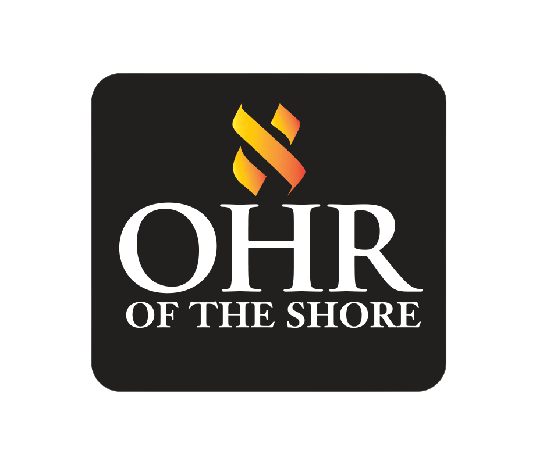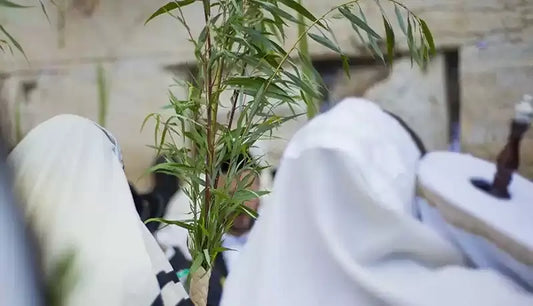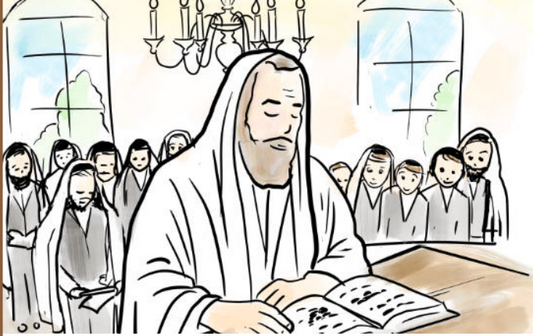To view/download this article in PDF form click here.
Prepared by: Rabbi Ezra Ghodsi
When is the fast of the firstborn?
Since we cannot fast on Shabbat, some say there is no need to fast, while others say the fast is moved back to Thursday. As the custom is to partake in a seudat mitsvah, like a siyum, one should make sure to do so to satisfy all opinions. This year, when the fast is pushed off, a father of a bechor who is under bar mitzvah does not need to fast or even partake in a siyum.
When do we check for hamets?
The checking is done with a candle, which is not possible Friday night, so it is moved back to Thursday night at the beginning of nightfall. Before starting to check, the beracha is recited just like in a regular year. After the checking, the kal hamira said after checking is recited.
When do we burn the hamets?
Normally we burn the hamets before the time when we are no longer allowed to have it in our possession. Although this year it is not necessary to burn at that time, in order to prevent confusion, we burn the hamets at the same time on Friday that we would normally burn the hamets in a regular year. The time for burning is approximately 11:19 AM in the NY/NJ area. Kal hamira is not recited at the time of the burning since we continue to eat hamets until Shabbat morning. Instead, it should be recited on Shabbat morning after one has finished eating hamets.
What should we eat on Shabbat?
As eating matsah is a mitsvah from the Torah, it is important that one should look forward to and desire the experience of eating matsah. Therefore, one cannot eat matsah on Erev Pesach. Even if it is crushed into matsah meal and mixed with other ingredients, it still retains its identity. This would include kosher for Pesah cakes made from matsah meal. If matsah is cooked or deep fried (or according to some even pan-fried), it is no longer considered matsah and is permitted to be eaten. However, if it is only baked, it does not lose its status and remains off-limits until the evening. One may also eat egg matsah since one cannot use egg matsah to fulfill his obligation at night.
For the night and morning meals one can cook (or according to some even fry) a whole matsah in a soup that remains a kezayit and is therefore still hamotsi. The matsah should be left in the soup until it absorbs the flavor of the soup. Another option is to have regular bread, while the rest of the meal can be kosher for Pesah food prepared in Pesah dishes. One can either use disposable dishes by the table or after eating the required amount of bread, remove all bread, change the tablecloth, and continue with a completely kosher for Pesah meal. If having bread, it is advisable to use pita that doesn’t crumble and make a mess. In the morning, the meal must be started early so all hamets is finished by the proper time (approximately 10:03 AM in NY/NJ area). Before this time, one should also clean their mouth so there is no hamets left in their mouth.
What do we do with leftover hamets on Shabbat morning?
Any leftover hamets should be crumbled and flushed down the toilet. The floors should also be swept, and any crumbs can also be flushed down the toilet. Any garbage should be put outside of one’s property. One should finish cleaning and recite kal hamira before approximately 11:19 AM in the NY/NJ area. The nullification also must be recited by this time in order for it to take effect.
When do we eat seudah shelishit?
Seudah shelishit should be eaten from half an hour after hatsot – midday (approximately 1:30 PM in the NY/NJ area). As we want everyone to come to the seder with an appetite, one should not eat a meal or any mezonot after the beginning of the 10th hour, which is approximately 4:15 PM in the NY/NJ area. If one didn't eat before this time, they should eat only a small amount (if mezonot, less than 50 grams) to fulfill the mitsvah.
What should we eat for seudah shelishit?
Some cook a whole matsah in soup as explained above. Another option is to eat mezonot like egg matsah or some form of cooked matsah (e.g. matsah balls). If not, seudah shelishit can be fulfilled with other foods, although it is preferable to have some meat or fish so it’s a more respectable seudah.
Can I take a nap so I have energy by the seder?
It is permitted to take a nap even if one’s intention is that he should have energy for the seder night; however, one shouldn’t verbalize that that’s his intention. However, it is okay for one to tell his kids to take a nap so they can be up for the seder.
What else should be done today?
The eve of Pesah is unique from every other holiday in that, essentially, the holiday of Pesah begins from after midday. That is the time that we would bring the Pesah sacrifice when we had the Bet Hamikdash. It is customary to read the “Order of the Korban Pesah.” The reading describes the service in detail and is a fitting mindset for entering the holiday of Pesah. Some read a special insight of the Arizal explained by Rabbi Shimon from Astropoli regarding the Ten Plagues. One can also review the Haggadah and prepare some thoughts to discuss at the Seder.
When do we say havdalah?
Before beginning any preparations, one should say: “baruch hamavdil ben kodesh l’kodesh”.
Havdalah is incorporated together with kiddush. Only a candle is used and not besamim. According to some, on Yom Tov, it is preferable not to put two candles together, rather the beracha should be recited on a single candle.




